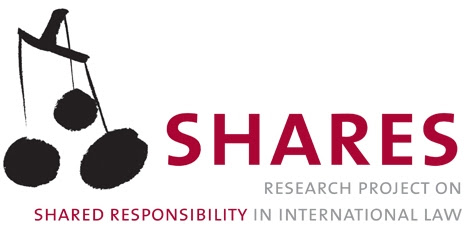Posted by: Heijer Maarten den
On 9 November 2012, the European Court of Human Rights rendered its judgment in Alisic and others v Bosnia and Herzegovina, Croatia, Serbia, Slovenia and the Former Yugoslav Republic of Macedonia, a high profile case concerning lost savings of citizens in former Yugoslavia. The savings were frozen when the dissolution of Yugoslavia in the early 1990s also resulted in the splitting up of two former state banks, raising complex issues of liability.
Multiple rounds of negotiations over the last two decades between the five successor states failed to produce a final agreement on liability. The European Court now finds Slovenia, which had nationalised one of the former state banks, and Serbia, which ‘either entirely or to a large extent socially‑owns’ the other former state bank, responsible for protecting the interests of savers (in this case three citizens of Bosnia and Herzegovina). The judgment is likely to have major repercussions, since the European Court notes in its judgment that it has received more than 1,650 similar applications, introduced on behalf of more than 8,000 applicants. But in total, the number of depositors may be as high as hundreds of thousands persons who had saved hundreds of millions of D-marks, according to a Council of Europe report from 2004 – including a very high percentage of accumulated interest. Apart from its financial implications, the Court’s judgment is of interest for questions of distributing liability; the scope of state obligations to protect the right to property; and the international rules governing succession of states.
The issue has also affected the final preparations for Croatia’s entry into the European Union. Slovenia was reported to have threatened to tie up Croatia’s bid for membership with a solution over the dispute on repayments.
The basic differences of opinion between the head-offices of the former state banks together with Slovenia and Serbia on the one hand, and the depositors together with Croatia, Bosnia-Herzegovina and the former Yugoslav Republic of Macedonia on the other hand, was whether the question of repayment should be solved on the basis of territoriality (the position of Slovenia and Serbia), holding that depositors were to be repaid by branch offices in the successor state where the savings were originally deposited; or whether the head-offices of the banks (located in Serbia and Slovenia) were liable.
The Court essentially endorsed the second approach. It noted that ‘a Contracting State may be liable for debts of a State-owned company, even if the company is a separate legal entity, providing that the company does not enjoy “sufficient institutional and operational independence from the State”’, thus attributing the conduct of the banks, including their branch offices located in the various successor states, to Serbia and Slovenia. It next concluded that even though a final agreement on liability would depend on negotiations between all the successor states, a failure on the part of other successor states to negotiate in good faith, did not prevent Serbia and Slovenia from their obligation under Article 1 of Protocol 1 (the right to property) to adopt ‘interim measures aimed at protecting the interests of savers.’
As to the issue of remedial measures, the Court has selected this case in order to issue a pilot judgment, obliging Serbia and Slovenia to undertake all necessary measures within six months to allow the applicants ‘and all others in their position’ to be paid back their old foreign-currency savings. Slovenia and Serbia are held fully liable for repaying the clients of the banks that have their head-offices in their territories. The dissenting judge Zupancic noted that this was the wrong approach, since the case was in reality an interstate succession issue and had to be dealt with accordingly.
A salient point that was also raised by judge Zupancic (himself of Slovenian nationality) is a possible bias in the majority opinion due to the composition of the ad hoc chamber deciding the case. As a consequence of the procedural rule of the Court (Rule 26) that the judge elected in respect of the respondent state sits in the chamber, five judges in this case were from one of the involved successor states, with a majority of four judges representing the ‘creditor states’. Zupancic therefore suggests the case must be examined in the Grand Chamber, where ‘the composition with the presence of all national judges will be attenuated in the group of 17 judges, i.e., the bearing of the plaintiff’s interests will likewise be less decisive.’
To be continued?
NB. For those who wonder whether the Bosnian applicants were ‘within the jurisdiction’ of Slovenia and Serbia in the meaning of Article 1 of the Convention, that issue was already dealt with at the admissibility stage. As to the argument of some respondent states that ‘the applicants were not within their jurisdiction, but within the jurisdiction of another respondent State’, the Court somewhat indistinctly responded that ‘[g]iven also the obligation of the respondent States to together settle all aspects of succession by agreement, this objection must be dismissed.’ (para 58)
